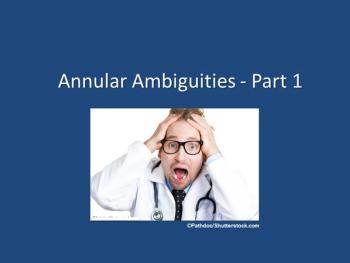
This article provides an overview of research concerning referral strategies for patients with substance use disorder and co-occurring disorders in the emergency department.

This article provides an overview of research concerning referral strategies for patients with substance use disorder and co-occurring disorders in the emergency department.

Stopping smoking affects the metabolism of a number of drugs used in the management of mental illness. Here, a summary of the author's published study on whether e-cigarettes with nicotine were more effective for smoking cessation than nicotine patches.

Smoking is the leading cause of preventable morbidity and mortality in the US. The majority of smokers want to quit, but only a fraction achieve this annually. New evidence shows it is possible to teach patients to weaken the link between craving and smoking until they are able to ride out any craving–and consequently quit.

What percentage of patients with schizophrenia have a comorbid cannabis use disorder? Take the quiz and learn more.

Psychiatrists are urged to familiarize themselves with these new drugs and the typical presentations of patients who use them since implications of misdiagnosis can be far-reaching.

The challenges of identifying patients at risk for alcohol withdrawal have been found to be mitigated by the development of a Risk Stratification Questionnaire, now being adopted by the VA regionally throughout New England. More in this video.

The authors evaluate the effects of nicotine and cannabis on neurocognitive function in individuals with schizophrenia and review potential pharmacological treatment strategies.

Can drugs be categorized as good (eg, medicinal), bad (eg, recreational with deleterious side effects and addiction issues), or is there a middle ground? That was the underlying theme in a lecture at PsychCongress, “Perils and Promise of Psychoactive Drugs: A Focus on Harm Reduction Psychiatry.”

If you could talk to a clinician-in-training about how they can better help people suffering from addiction, what would you say? A Q&A between Arjune Rama, MD, and comic Marc Maron.

Here, a psychiatrist certified by the American Board of Addiction Medicine discusses new treatment criteria for addiction.

Both the American Psychiatric Association and the American Academy of Child and Adolescent Psychiatry have identified substance abuse as a top risk factor for suicide in youths.

If our survey on medical cannabis is any indication, psychiatrists are widely-and deeply-divided on whether and how marijuana should be used in clinical practice. You can read the results here.

As we accumulate a greater war chest of patient experiences, we can better apply our skills as physicians to fill a space once occupied with alcohol-lubricated decision-making with smooth yet sober coping strategies.

Calling all psychiatrists: we conducted a survey of your opinions about prescribing medical cannabis and invite you to view the results.

Quick . . . name a class of prescription medications that, by most evidence, appears to be overprescribed and abused and the use of which has resulted in an increasing number of emergency department visits. If you said "opioids," you would be right.

It is clear that the prognosis for schizophrenia is much better when patients achieve drug abstinence, including in the domains of depression, quality of life, and community integration.

Pharmacological and nonpharmacological strategies to treat and manage comorbid schizophrenia and addiction concern psychiatrists who are learning strategies to help improve functional outcomes.

A parent's heavy drinking can increase a child's risk of substance use disorder.

As we are faced with a growing population of older adults, a better understanding of the issues that they confront is crucial.

How can clinicians reliably identify comorbid drug and alcohol use disorders in patients with anxiety disorders?

How would you rate the integration of mental health treatment with addiction treatment? Where is there room for improvement?

The report notes that pain is a significant public health problem that affects more than 100 million Americans, costs our society at least $560 to $659 billion annually, and can be severely detrimental to the lives of sufferers.

Substance use disorders are associated with significant morbidity and mortality that affects individuals and their families. Preventing the onset of an SUD in adolescence remains a critical area of clinical and public health significance.

Anxiety disorders occur in 18% to 28% of the US general population during any 12-month period. In anxiety disorder, there is a 33% to 45% 12-month prevalence rate for a comorbid substance use disorder (SUD).

In this article, we attempt to leverage state-of-the-art research findings to provide empirically informed perspectives and practices related to these issues.